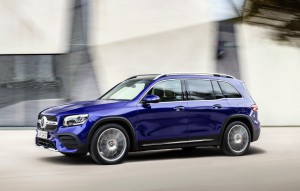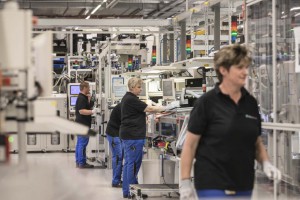
Ola Källenius, Daimler AG’s newly appointed CEO replacing Dieter Zetsche, had to report the company’s $1.34 billion second quarter loss.
In a report likely to send shock waves through the industry, Daimler AG, the parent company of Mercedes-Benz Cars, earnings plunged during the second quarter as the German auto giant posted a loss of 1.2 billion euros, or $1.34 billion, for the second quarter, a steep drop from 1.8-billion euro profit it earned during the same period in 2018.
The heaviest losses were concentrated in the Mercedes-Benz Cars and Mercedes-Benz Vans business units, which were covered in red ink.
“Our second quarter results were mainly impacted by exceptional items of 4.2 billion euros. Therefore, our focus for the second half of this year is on improving our operating performance and cash-flow generation.
(Diesel Recall Forces Daimler to Revise Earnings Outlook)
“In general, we are intensifying the Group-wide performance programs and reviewing our product portfolio in order to safeguard future success. At the same time, we are continuing consistently our company transformation,” said Ola Källenius, Daimler’s new CEO who took over the company from Dieter Zetsche in May.
Källenius said Daimler expects the group’s earnings before interest and taxes of EBIT in 2019 to be significantly below the prior-year level even though business and earnings are expected to improve in the second half of 2019.
“Nevertheless, the anticipated development of earnings in the automotive business as described above will partially have a negative impact,” Kallenius said.
“The ongoing high upfront expenditures for new products and technologies as well as the costs for ‘Project Future’ to implement the new Group structure will be a burden. Under these conditions, Daimler expects the free cash flow of the industrial business in financial year 2019 to be significantly lower than in the previous year.”

Mercedes-Benz endured a sales slump during the second quarter, leading to the Daimler’s quarterly loss.
For the second quarter, Daimler’s earnings per share dropped to a loss of 1.24 euros per share, compared to a profit 1.61 euros per share in the same period a year ago.
(Daimler AG Ushers in New Era with Massive Reorganization)
Mercedes-Benz Cars unit sales dropped 3% in the second quarter and revenue fell 1% to 22.3 billion euros and the division’s earnings before interest and taxes of EBIT fell to a loss of 672 million euros from a profit 1.9 billion euros in the second quarter of 2018. The profit margin for the luxury car business was – 3%. The division expects margin to return to positive territory in the second half of the year.
Mercedes-Benz Vans expects to continue to sustain losses similar to those sustained during the second quarter when EBIT dropped to 2.05 billion euros from a profit of 152 million euros in the second quarter of 2018, while return on sales fell to minus 56.1% from a plus 4.3%.
The separate Daimler Truck and Daimler Busses units posted profits in the second quarter as did Daimler financial services.
Earlier week, Kallenius announced the decision by Beijing Automotive Group Co. Ltd., or BAIC, the German automaker’s principal partner in China, to acquire a 5% stake in Daimler AG. The move was widely seen as an effort to help Daimler boost its faltering share price.

Daimler AG is partners with BAIC for electric vehicle production in China, which is pushing for more “new energy vehicles.”
Daimler and BAIC are linked in a long-standing strategic partnership that has existed since 2003. Since then, the two companies have cooperated in the production, research and development, and sale of passenger cars, vans and trucks. In 2013, Daimler acquired an equity interest in BAIC Motor, a listed subsidiary of BAIC, and currently holds 9.55% of its shares.
(Daimler prepares cost-cutting plans for new chief Kallenius.)
Since 2018, Daimler has also held an interest of 3.01% in BAIC BluePark New Energy Technology Co. Ltd., a manufacturer of electric vehicles for China. Another major Chinese company, Geely, own a 10% stake in Daimler AG.
